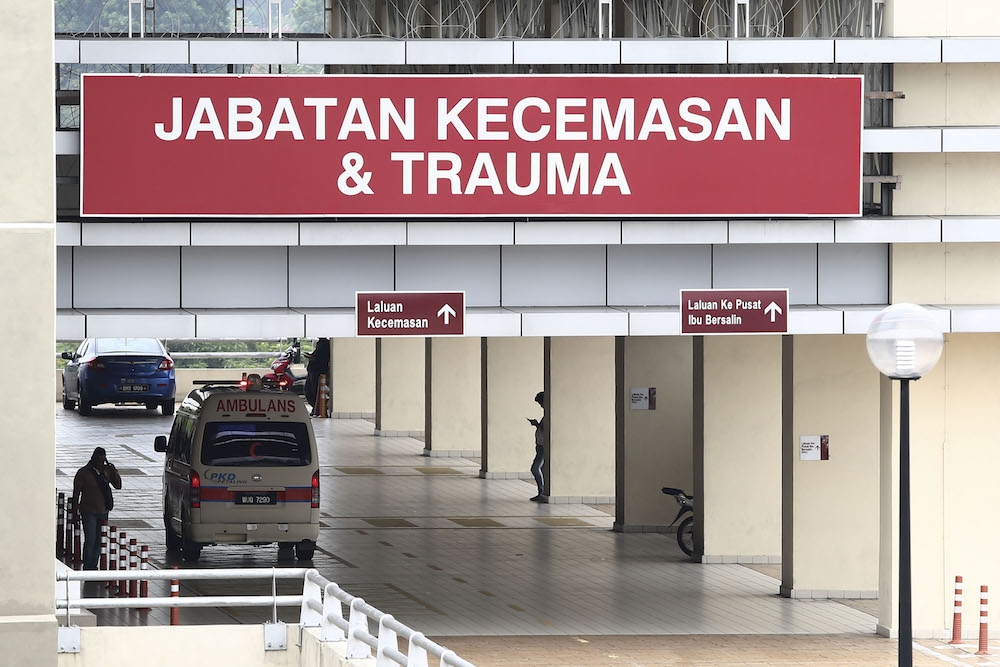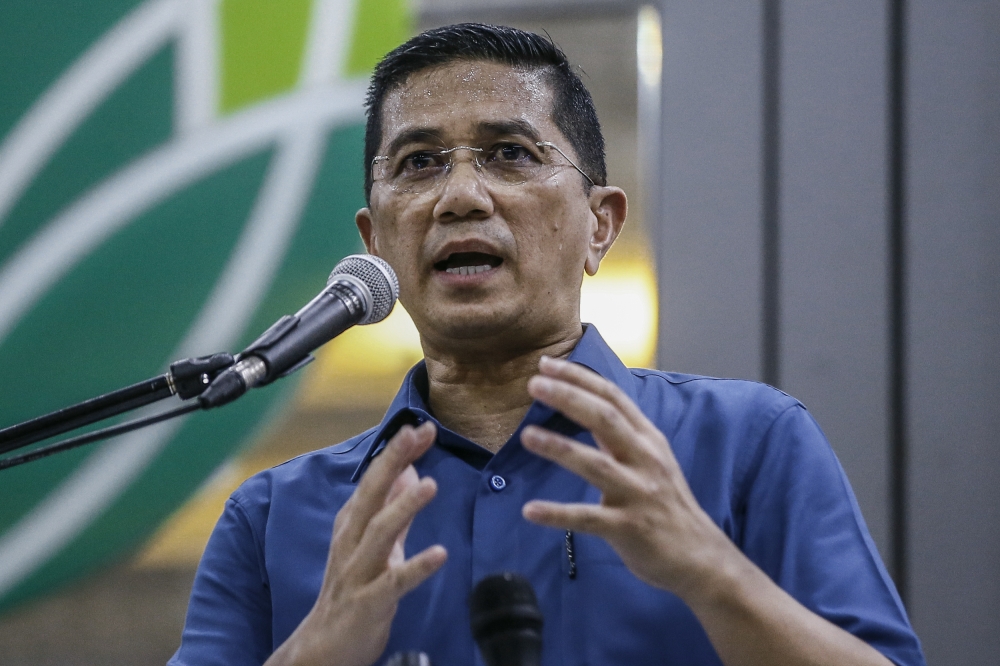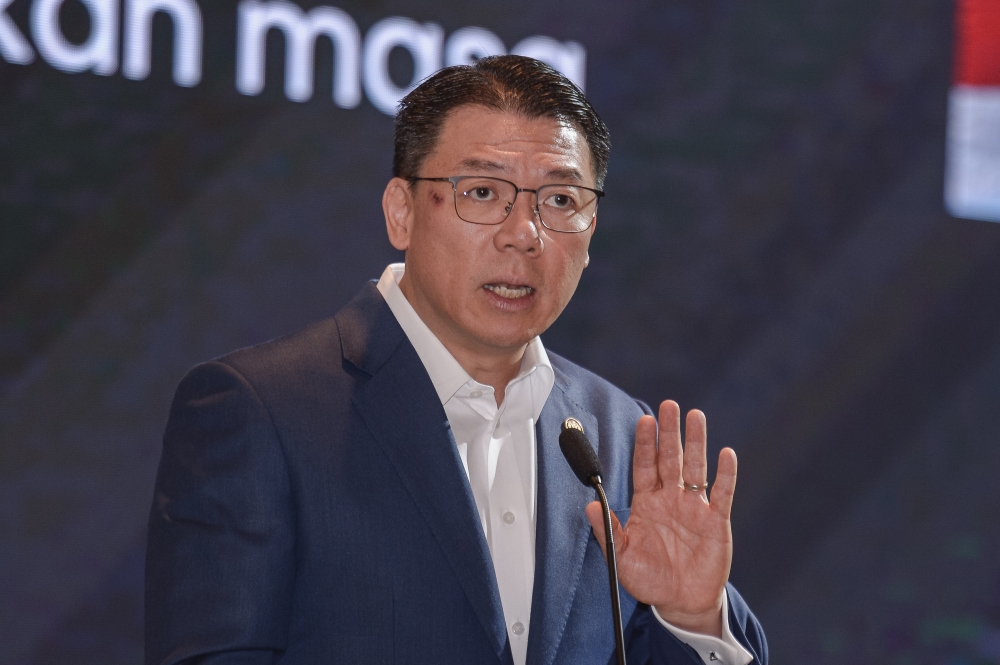KUALA LUMPUR, Sept 18 ― Jason Leong says he’s in the fight of his life against veteran comedian Harith Iskander!
The prize? The chance to represent Malaysia in an international competition by Hollywood’s Laugh Factory.
Leong, a 31-year-old doctor by training who has been doing stand-up comedy full-time since 2014, said Malaysians should vote for him in the Funniest Person in the World competition organised by the iconic US comedy club because he represents the new generation of comedians.
“I represent the pulse of Malaysia in a more contemporary form,” Leong told Malay Mail Online in a recent interview.
“Also, I’d like to think I’m one of the hardest working comedians in Malaysia,” he added, saying that he hones his craft every week by going to open mics and stand-up comedy shows.
He added that he also has experience in international stand-up comedy competitions, pointing out that he won the 7th Annual International Hong Kong Comedy Competition in 2013. Leong also performed at the Melbourne International Comedy Festival 2015.
“I know that my stuff has international appeal,” Leong said, adding that he has toured Australia, the United States, Singapore, Hong Kong, Sri Lanka, and the Philippines.
Eighty-nine contestants from 56 countries are competing in the Funniest Person in the World, with two from Malaysia: Leong and Harith. However, only one of them can represent Malaysia in the competition where the winner will get US$100,000 (RM400,000)
Leong’s clip for the Funniest Person in the World shows him making jokes about the crime rate in Malaysia, Proton cars, and the Chinese.
According to Leong who performed at Laugh Factory in 2014 ― the club has hosted top names like Tim Allen, Ellen DeGeneres and Chris Rock ― the winner of the inaugural Funniest Person in the World competition in 2014, Finnish comedian Ismo Leikolaa also got his own TV show and appeared in a movie.
The top 20 comics whose videos receive the highest votes online will be selected for the “live” semi-finals in Finland in December. At the time of writing, Harith and Leong have the highest votes at 950,580 and 828,694 respectively. The third contender, Alex Calleja from the Philippines, is far behind with 342,015 votes.
“It means that our country really supports us,” Leong said.
Leong said he used to do mostly race-based jokes when he started out, but has progressed to poking fun… at himself.
“Now, it’s more like personal stories, stories about my wife, stories about our marriage, things that really, really happen.
“I’m trying to go to the next level where this is my own take on life, my own journey, and you will find it funny,” he said.
According to Leong, Malaysians are fans of racial and political jokes.
“A good race-based joke makes everyone more connected. Finally we can talk about our differences, we address the elephant in the room, whereas politics-based jokes is just because of Malaysia,” he said. “Stand-up comedy is a tool that society uses to hold a mirror to the powers that be, so I think it’s very relevant in Malaysia”.
Leong said the urban stand-up comedy scene in Malaysia started six years ago after Canadian comedian Russell Peters’ clips appeared on YouTube, about the same time he first entered the scene.
“It has grown a lot, it’s seen an exponential rise in awareness, people coming and buying tickets to come to our show. It’s really booming; it’s in tandem with other comedy scenes in Hong Kong, Singapore, Philippines,” said Leong.
According to him, there are currently about 30 stand-up comics in Malaysia, 10 of whom can be said to be professionals or regulars, compared to some 400 comedians in Los Angeles alone or thousands in London.
“We’re a scene in its infancy,” said Leong.
He added that while American comedians can take a whole year to tour the entire country, and hence don’t need to come up with new material frequently, their English-speaking Malaysian counterparts currently tour Kuala Lumpur, Johor Baru, Penang, Kuching, Kota Kinabalu and Ipoh and that takes only a month.
The Bahasa Malaysia-speaking scene, according to Leong, has about 10 or 15 comics.
“The Malaysian scene is also unique in the sense that a lot of Malaysians come to our shows, as opposed to say in Hong Kong where you usually get an expat audience, so it’s white people going to comedy shows. Singapore also, you tend to get more expats at comedy shows.
“So for us, because of the size of the population, a lot of Malaysians come to watch Malaysians do stand-up comedy,” said Leong.
To vote for Leong, click here: www.votedrjason.com


















